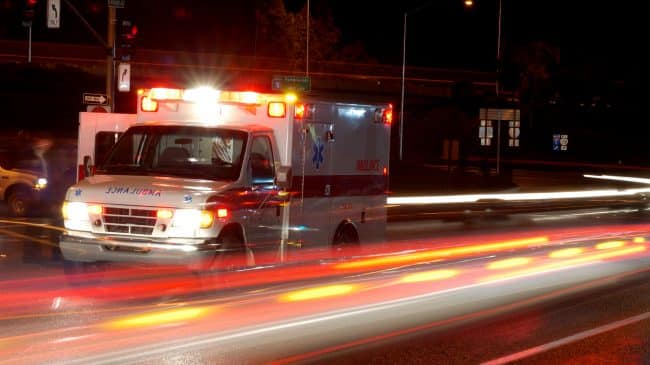California Proposition 11: Ambulance Employees Paid On-Call Breaks, Training, and Mental Health Services Initiative.
Proposition 11 would allow ambulance providers to require workers to remain on call during their breaks, would require more training for emergency medical technicians (EMTs), and provide more mental health training.
Fiscal Impact
In the long run, the state could save tens of millions of dollars in contracts with emergency medical services (EMS) providers
Proponents Argument For
EMTs and paramedics have traditionally been on call when during their shift breaks because you can’t have another full ambulance crew come on duty to cover them during a break and respond to emergency calls. But a recent California Supreme Court ruling found that current law does not allow EMTs and paramedics to be on call during breaks. Proposition 11 would fix this by changing the law to allow on-call breaks and ensuring fastest response to emergency calls. At the same time, it requires that workers are paid for on-call breaks, that if they get a call during a break it does not count as one of their breaks, and that breaks can’t be scheduled at the start or end of shifts. It also requires specific training for EMTs and paramedics on special crises responses. Proponents argue that without Proposition 11 ambulance providers would be forced to have additional ambulance crews to cover the emergency calls while others are on break and that will dramatically increase the costs of ambulance services.
Opponents Argument Against
Opponents argue that EMTs deserve to be able to take breaks during their workday so they do not have to respond to emergency calls at all times during their typical 12-hour shifts. They claim the California Supreme Court confirmed this when it concluded that security guards and EMTs are entitled to breaks without interruption just like other employees. Allowing EMT employers to direct emergency calls to on break employees violates the law and risks the physical and mental health of the employees. EMT employers can afford to sacrifice some profits to make their work conditions amenable to California labor law.
Discussion
Public safety workers have long lived with the fact that their jobs require being on call a lot, including while they are on breaks. But in 2016 the California Supreme Court ruled that the state law intended to protect general worker break periods also applies to EMTs and paramedics. The ambulance industry cannot make this work without substantially increasing costs, which would then present many problems for the emergency response and the health care systems. The measures in Proposition 11 are designed to allow for on-call breaks while ensuring that EMTs and paramedics don’t lose breaks due to the practice.
Voters’ Guide to the 2018 California Ballot Initiatives
The Voters’ Guide offers analysis of each of the 11 ballot propositions certified for the election being held on November 6, 2018.
